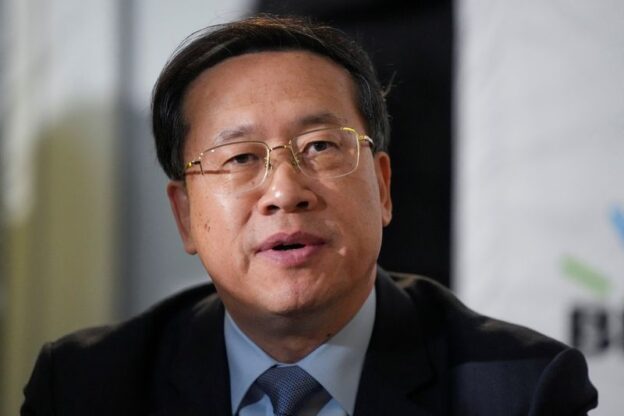BEIJING (Reuters) – Chinese Vice Foreign Minister Ma Zhaoxu urged the United States to refrain from “smearing” China and to stop imposing “abusive” sanctions on Chinese companies at talks this week in Washington, China’s foreign ministry said on Friday.
Ma met U.S. Deputy Secretary of State Kurt Campbell and deputy national security adviser Jon Finer on Thursday, a day after the U.S. accused Beijing’s leadership of supporting Russia’s war in Ukraine and said China could face further Western sanctions.
“(We) urge the U.S. to stop smearing and exerting pressure on China, stop imposing abusive unilateral sanctions on Chinese enterprises, and play a constructive role in the resolution of the Ukraine crisis,” the Chinese foreign ministry quoted Ma as telling Campbell.
Ma said China-U.S. relations were at a “critical stage” of stabilising from deterioration and called Taiwan issue “the most important, sensitive and explosive issue” between Beijing and Washington.
“If the U.S. really wants peace and stability in the Taiwan Strait, it should abide by the one-China principle and the Three Joint Communiques, and honour its commitment not to support ‘Taiwan independence’,” Ma added.
State Department deputy spokesperson Vedant Patel described Campbell’s meeting with Ma as part of intensive diplomacy to responsibly manage competition in the U.S.-China relationship, and said the U.S. expected more such senior-level engagement.
Patel said the U.S., its G7 partners and other EU and NATO countries shared the view that China’s support for Russia in the Ukraine war “not only threatens Ukrainian security, it threatens European security.”
He declined to provide details of any future sanctions when asked whether those might target Chinese leaders given Campbell’s comment.
The Biden administration has stepped up warnings about China’s support for Russia and issued an executive order in December that threatened sanctions on financial institutions helping Russia skirt Western sanctions.
Last month the U.S. imposed sanctions on 20 companies based in China and Hong Kong, following repeated warnings from Washington about China’s support for Russia’s military.

Comments are closed